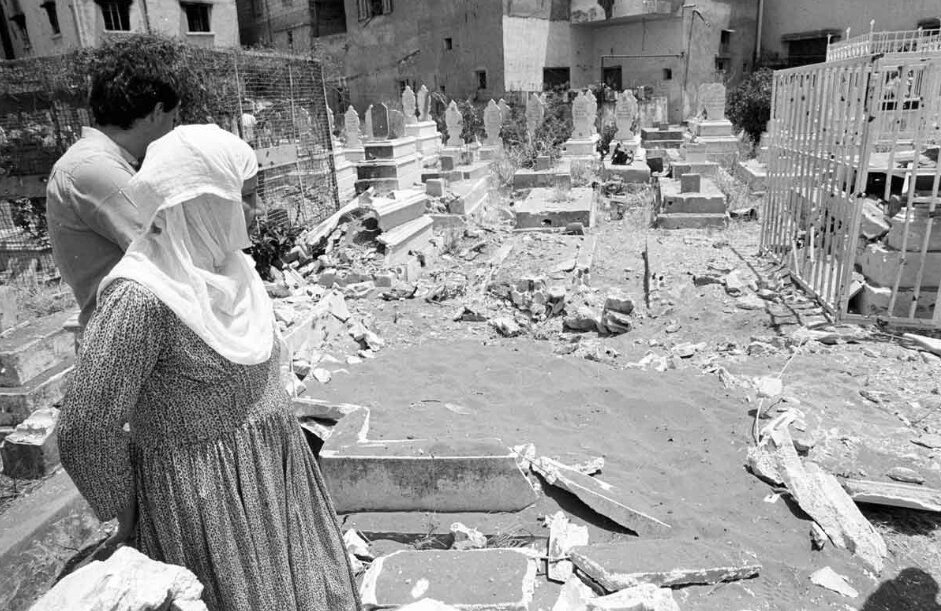Beirut – Those who witnessed the bloody events of the Lebanese civil war that took place on April 13, 1975 did not believe that it would cause a series of crises in 50 years!
Historians of Islamic theology point out that the name given to the Murzians comes from the Arabic verb “arja’a.”
According to Ibn al-Athir they were called Murzia because they prioritized the importance of publicly declared faith in his actions.
They also have the false opinion that Muslims should practice postponed judgments regarding the committers of major sin against God alone.
Muruji’s doctrine was a methodology adopted by Umayyadh following the assassination of Imam Ali and the self-appointment of Muawiya Ibn Abi Sufian as a caliph to silence his opposition to the validity of the caliph.
This is what Geagea holds to silence the Lebanese. In particular, victims of civil wars, especially those killed at the hands of Lebanese military militias, have yet to forget the devastating fears caused by Giagea and other civil wars.
But why are they so focused on Samir Geagea? It’s simple and simple. He was the successor to Bashir Jemaiel, and the enemy forces were employed after 1980 to eliminate the resistance movement as the enemy was unable to achieve military and politically during the ongoing US-led invasion of Israel.
Samir Geagea decides a position of indifferent to others, despite being a pawn in the hands of the American surveillance Den (embassy) in Beirut.
At the time, the US government sought to prevent Lebanon from transforming into a socialist camp in the context of the Cold War.
Geagea learned nothing from the civil war or from the consequences of his dreams of erasing a particular sect from existence, as he tries to do today on the general foundations of civil peace, sectarian, religious agitation, or Shiite factions.
Geagea has never condemned Israeli invasion, but has denounced Hezbollah. He argues in light of repeated Israeli attacks and ignoring international resolutions, agreements or commitments, “using these violations (violations of Israeli territory) as excuses to maintain his presence.”
In the aftermath of all the wars that Israel’s enemy was waged, the Lebanese condemned the victims, not the perpetrators, in that they were largely in line with the enemy in justifying the massacre and attack.
This time, the situation is no different from what happened after the war in July 2006. The WikiLeaks document revealed elements of the anti-Hezbollah team that acted as enemy informants.
The same voices then appeared to declare defeat in resistance and demand that disarmament while Lebanese citizens had returned to their destroyed homes and had not yet buried the martyrs.
The civil war is nothing more than an Israeli project, and Israeli resistance groups are primarily interested in avoiding and repulsing, albeit by force, even if it needs to be licked.
This includes the fierce Western Israeli enthusiasm to eliminate resistance despite the fact that conditions today exist with the outbreak of the civil war in the 1970s.
The situation at the time also included the claims of anti-resist groups against the advocacy of sects, territorials and isolationist regimes.
This is a precedent in the history of Arab-Israel conflict, as resistance has scared the US and Israeli enemies since 1948 than Arab forces.

